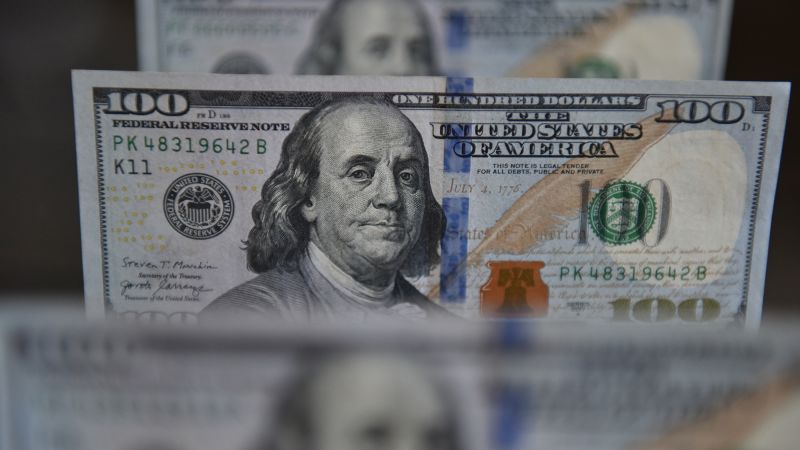The US dollar is barreling toward a 3.7% loss this month against a basket of six major currencies in what would be it worst monthly performance in a year.
That’s good news for countries relying on imports of commodities, most of which are traded in dollars, as well as nations paying down dollar-denominated debt. But American businesses and consumers could end up paying more for imported goods.
The US Dollar Index was on a tear between mid-July and early October, surging by more than 7%, as a slew of positive economic data from the United States fueled expectations the Federal Reserve will keep interest rates high.
Higher interest rates tend to boost the value of a currency by attracting more capital from abroad into the country — as investors anticipate making bigger returns — which increases demand for the currency.
But, in recent weeks, signs that the US economy has finally started to decelerate have convinced investors that the Fed is done hiking borrowing costs and will soon turn to cutting rates.
“I can see two more quarters of US dollar weakness, particularly if it becomes even more clear that the Fed is going to cut interest rates,” Ulrich Leuchtmann, head of foreign exchange research at Commerzbank, told CNN.
Cameron Willard, from the UK capital markets team at Swedish bank Handelsbanken, also expects the dollar to continue to fall steadily over the first half of next year but thinks the greenback will likely reverse course later in the year as geopolitical risks — such as uncertainty around the outcome of several countries’ elections — come to the fore.
In turbulent times, investors see the dollar as a safe haven, where their cash will keep its value.
“I struggle to see a longer-term dollar depreciation,” Willard told CNN. “In order for that to happen, you need to have a credible alternative… (The dollar) is still the world’s reserve currency and the safest currency in the world, and I don’t see that changing.”
For countries that depend on commodity imports, a weaker dollar means they have to pay less for essentials like wheat and crude oil. That, in turn, could cool overall inflation in those economies.
For example, Japan, Korea, India and many of the countries using the euro are reliant on commodity imports, said Mark McCormick, global head of foreign exchange and emerging markets strategy at TD Securities.
American exporters also stand to gain because, as the price of their products falls in other currencies, they become more competitive abroad.
At the same time, Leuchtmann said, a lower-value dollar raises the cost of imports into the United States, helping American companies selling into the domestic market compete against foreign rivals because homegrown products become relatively cheaper.
It’s also good news for emerging markets. A number of up-and-coming economies have debts denominated in dollars, and a weaker dollar can make servicing those debts less expensive.
A fall in the greenback’s value also signals better investment opportunities outside the United States, McCormick told CNN.
“A weaker dollar is a rising tide that lifts all boats,” he said.
And who loses?
A limper dollar is bad news for American consumers, who can expect to pay more for imported goods such as French wine or Chinese-made toys, and more on vacations abroad.
“A weakening dollar basically makes the US a little bit poorer because they pay more for the goods they are importing, and get less for the goods they are exporting,” Leuchtmann said.
All else being equal, that stokes inflation, he added, but the rate of price rises is influenced by other factors as well.
“I’m sure that inflation will decrease further in the US, but the speed of this development will be lower than it would be with a strong dollar,” he said.
Willard, of Handelsbanken, points to cooling US labor and housing markets as two factors likely to keep headline inflation in check, even if the price of imports rises.
“I don’t think the Fed will be too alarmed at this stage,” he said.
Read the full article here




